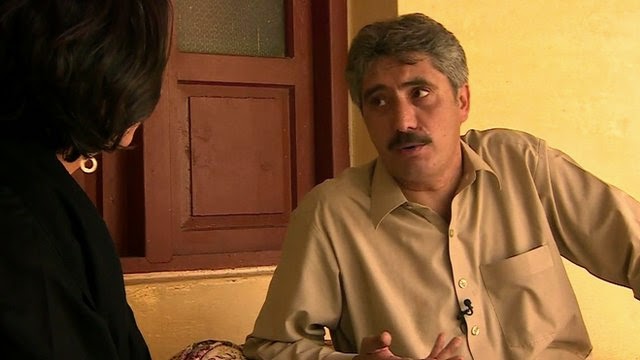Journalist Jamshed Baghwan: "I have changed my phone numbers and never share my location"
Pakistan's authorities have "almost completely failed" to protect journalists, says human rights group Amnesty International in a new report.
It documented in detail 34 cases of journalists being killed since the end of military rule in 2008.
Of these, 13 happened in insurgency-hit Balochistan province. Nine were in the north-west where the Taliban are based.
Only one case since 2002 has seen the killers convicted - that of the 2011 murder of Wali Khan Babar.
But even in this case there were "serious concerns" about whether it was a fair trial, says Amnesty.
News of Hamid Mir's shooting has shocked journalists and other Pakistanis
Pakistan is one of the world's most dangerous countries for journalists, according to the Committee to Protect Journalists, which has also extensively documented cases of attacks on reporters in the country.
The Amnesty report comes on the heels of the widely-reported shooting of Hamid Mir, one of Pakistan's best known television presenters.
On 19 April, he was hit six times in the abdomen and legs after his car was fired on by men on motorbikes as he was leaving Karachi airport.
Raza Rumi was shot at in March but survived
Another television anchor Raza Rumi was also shot at in March while he was in his car in Lahore. His driver was killed.
Numerous journalists interviewed by Amnesty complained of harassment or attacks by people said to be connected to Pakistan's military spy agency, the Directorate for Inter-Services Intelligence.
The agency is said to target those who persist with reporting on sensitive national security topics, such as security lapses, or alleged links between the military and the Taliban.
Amnesty says there is "a clear pattern of methodical harassment", starting with threatening phone calls and progressing to outright harassment, abduction, torture and even assassination.
Previous accusations of this nature have been denied by the authorities.
Other organisations such as powerful political groups, the Taliban and ethnic armed groups also target journalists, Amnesty says.
In March, Pakistan's Prime Minister Nawaz Sharif pledged to do more to protect journalists.
But more needs to be done, says Amnesty's deputy Asia-Pacific director David Griffiths.
"A critical step will be for Pakistan to investigate its own military and intelligence agencies and ensure that those responsible for human rights violations against journalists are brought to justice. This will send a powerful signal to those who target journalists that they no longer have free rein," he said.













0 comments:
Post a Comment